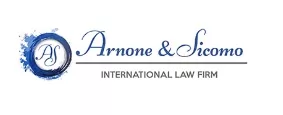- within Media, Telecoms, IT and Entertainment topic(s)
- in United States
- with readers working within the Business & Consumer Services, Technology and Media & Information industries
- within International Law, Real Estate and Construction and Intellectual Property topic(s)
Discover how iGaming is regulated in Italy: learn about ADM licenses, online casino compliance, legal betting requirements, and how to operate safely within the Italian market.
What is the meaning of iGaming?
iGaming is one of the fastest-growing sectors in the European market. It generally refers to any form of online gambling activity, including regulated online casinos, sports betting, and slot machines.
In Italy, iGaming is governed by a strict legal framework designed to ensure safety, transparency, and consumer protection. In this article, we will analyze the Italian regulatory landscape and explain what foreign companies must do to obtain an ADM license.
iGaming in Italy: Who Regulates Gambling in Italy?
In Italy, the Agenzia delle Dogane e dei Monopoli (ADM) — the Customs and Monopolies Agency — is the government authority responsible for regulating and supervising online gambling activities, including online casinos, sports betting, online poker, and other forms of remote gaming.
Gambling regulation in Italy distinguishes between unauthorizedand authorized games. The former are strictly prohibited in any form, while the latter are allowed only with a specific license, concession, or other form of authorization.
To protect players, ADM performs rigorous controls to detect any irregularities in the operation of licensed iGaming platforms. Violations are severely punished, and in serious cases, platform operators can face criminal charges, particularly in cases of tax evasion or fraud.
iGaming in Italy: How to Get an iGaming Licence
To legally operate in the Italian iGaming sector, operators must obtain an ADM license, which requires compliance with the following:
- Financial requirements: minimum capital and financial stability;
- Technical requirements: servers located in the EU, cybersecurity protocols, ISO certifications;
- Legal requirements: no criminal records for directors, anti-money laundering compliance;
- Detailed operational plan: explanation of games offered, player protection measures, and tools to prevent gambling addiction.
Currently, the number of licenses is limited, and access is granted via public tenders, usually held every 5 to 7 years.
iGaming in Italy: Responsibilities of iGaming Operators
Licensed operators must:
- Offer self-exclusion tools for vulnerable players;
- Implement identity and age verification procedures;
- Comply with anti-money laundering (AML) regulations and GDPR for data protection;
- Pay online gaming taxes, which range between 20% and 25% of gross gaming revenue.
ADM works in coordination with the Postal Police to block illegal platforms and regularly publishes an updated blacklist of non-compliant operators.
The content of this article is intended to provide a general guide to the subject matter. Specialist advice should be sought about your specific circumstances.


